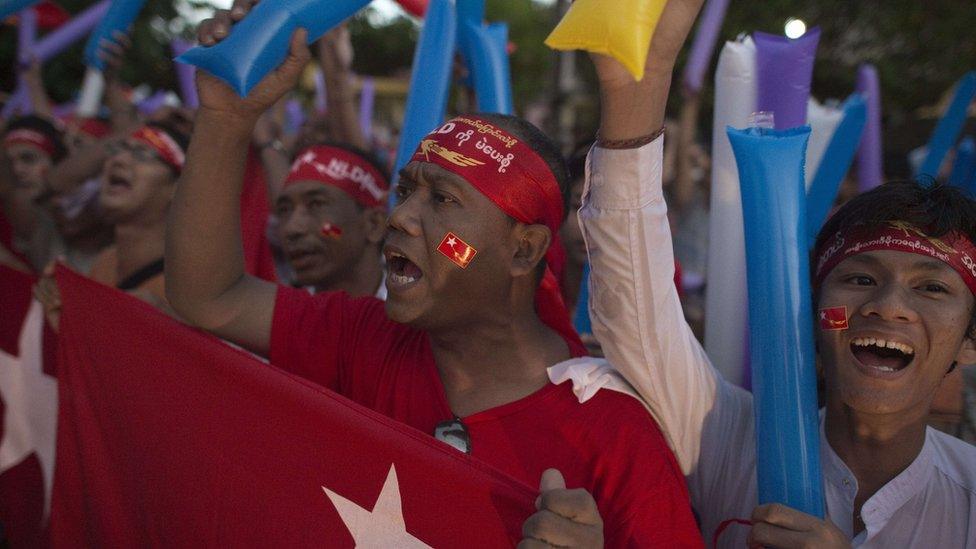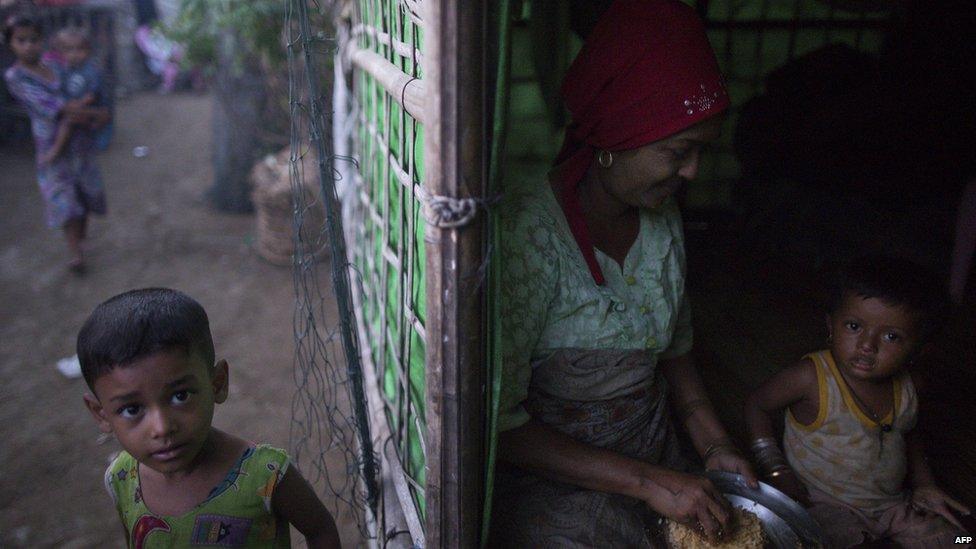Myanmar election: Aung San Suu Kyi positions herself for victory
- Published
Aung San Suu Kyi: "There's a lot more to be done, before our people feel secure enough to celebrate"
With official results still being announced from counting centres across the country it might have seemed premature to declare victory. But Aung San Suu Kyi was brimming with confidence.
This was a leader who strongly sensed her hour had come. She told me she expected her party had won enough seats to form a government - reaching at least the 75% target needed.
Privately some senior NLD figures believe the party will comfortably exceed this figure. That might be what prompted Ms Suu Kyi to tell me that her supporters must show humility.
"I don't think that those who have won should make themselves obstreperous or offend the feelings of those that have lost."
Ms Suu Kyi has developed from being the symbol of an embattled democracy movement into a steely political operator.
Personal stand
Two decisions proved key in reaching today's moment of victory. The first was her adherence to Gandhian principles of non-violence.
As she told me today: "The more repressive the military became the more convinced I was of the need for non-violence."
She believed armed struggle to be morally wrong but also knew it would be counter productive. The world and - more importantly - the people agreed.

Early results pointed to a sweeping victory for the NLD
There was also an extremely painful and personal stand. By refusing to go into exile and remaining in Burma under house arrest, Ms Suu Kyi was separated from her husband and two sons.
It was a sacrifice shared by her family but deeply appreciated by tens of millions of Burmese.
The military remains powerful with an entrenched parliamentary bloc and control of the security ministries. I suggested that they could still sabotage the transition.
"The times have changed, the people have changed," she replied.
'People want peace'
One of her most significant commitments in the interview related to the position of the country's Muslim minority, including the disenfranchised Rohingyas of Rakhine state in the north-west. In the past she's faced strong international criticism for failing to speak out on their plight.
I put to her that the true test of a democracy was how it protected the rights of the weakest and marginalised. All would be protected, she said, and those preaching hatred would be prosecuted.

Minority Rohingya Muslims have been targeted by ultra-nationalist Buddhist groups in Myanmar
"Prejudice is not removed easily and hatred is not going to be removed easily… I'm confident the great majority of the people want peace… they do not want to live on a diet of hate and fear."
This means she will have to confront the sectarian behaviour of some powerful Buddhist clergy who have already accused her of being soft on Muslims.
The key to understanding Ms Suu Kyi is her mix of idealism and political shrewdness. When the army blocked the way to the presidency she simply went around them.
It seems likely that a senior colleague will be nominated to the presidency but with Ms Suu Kyi making "all the decisions."
She would be, as she put it to me, "A rose by any other name."